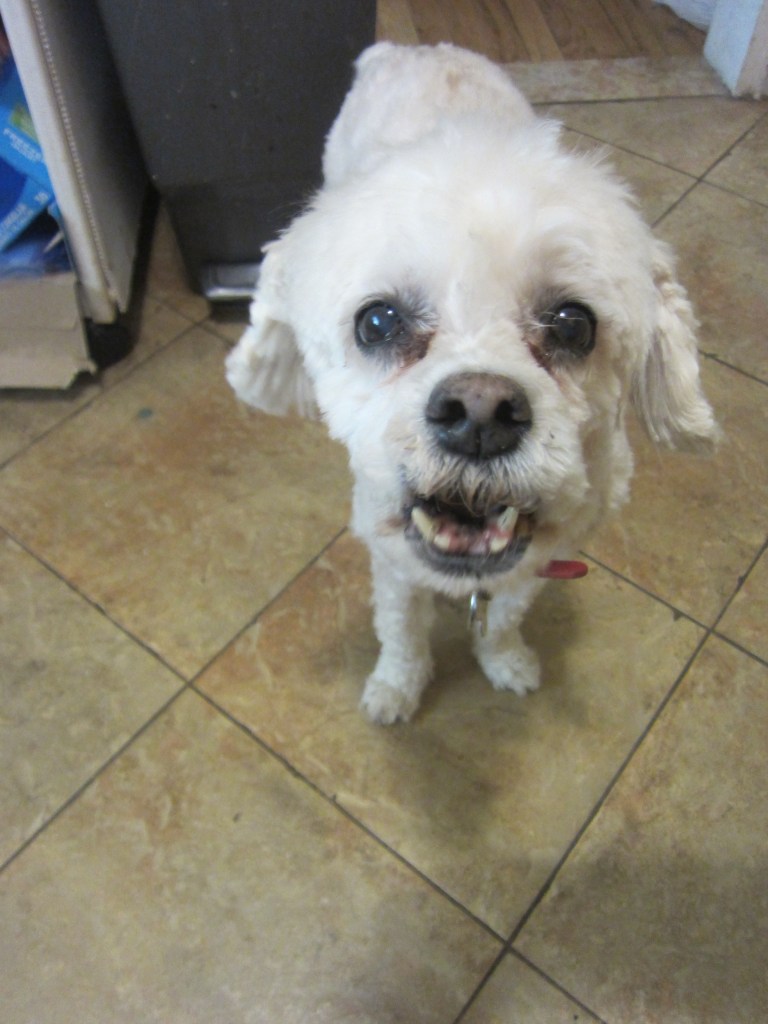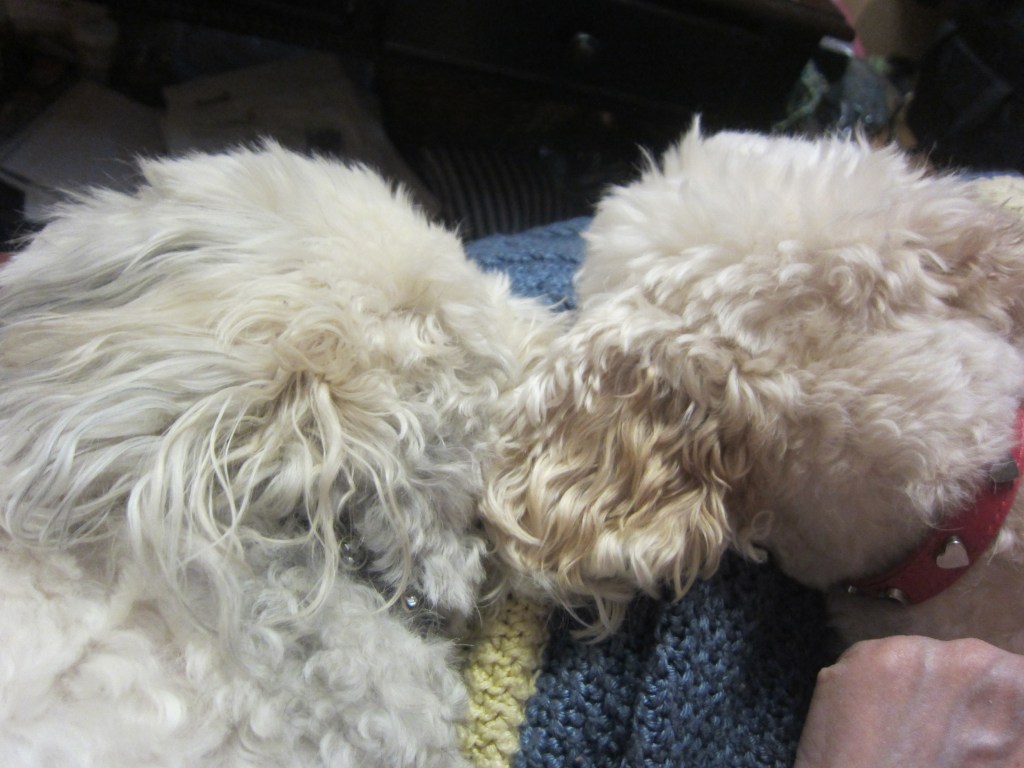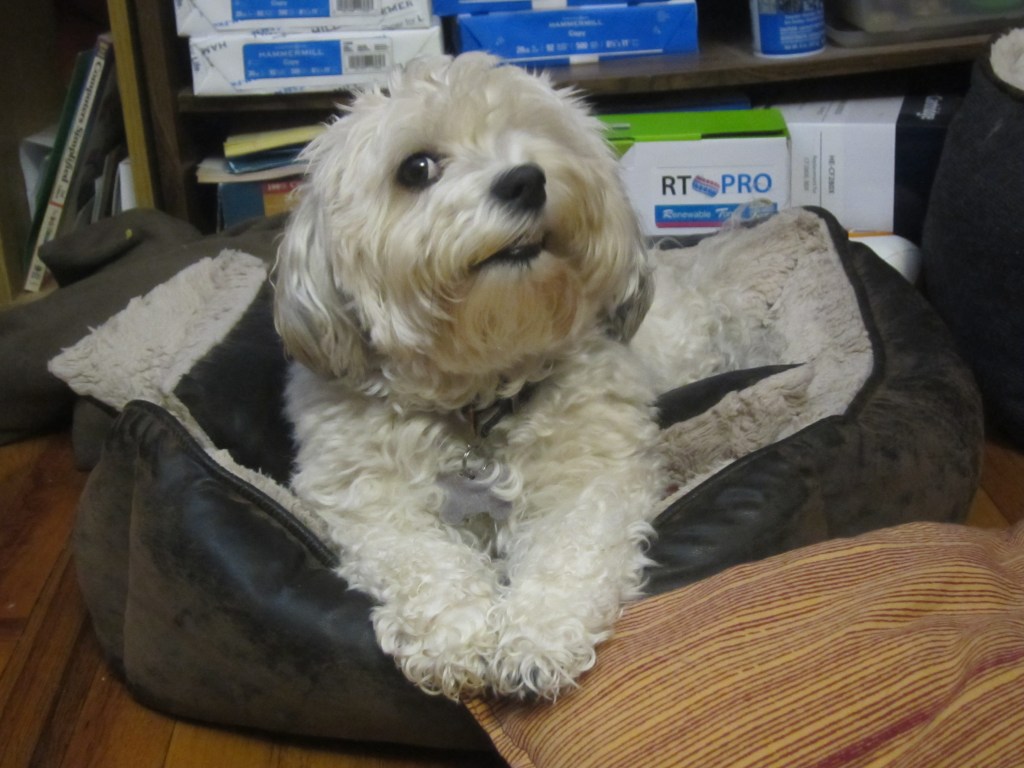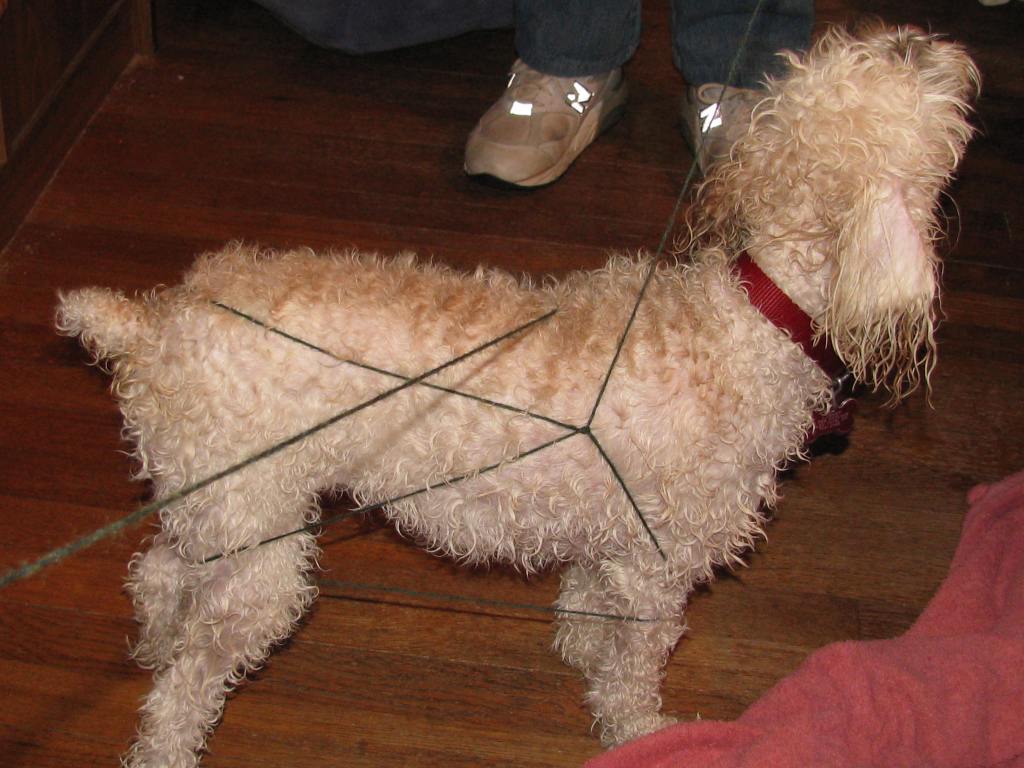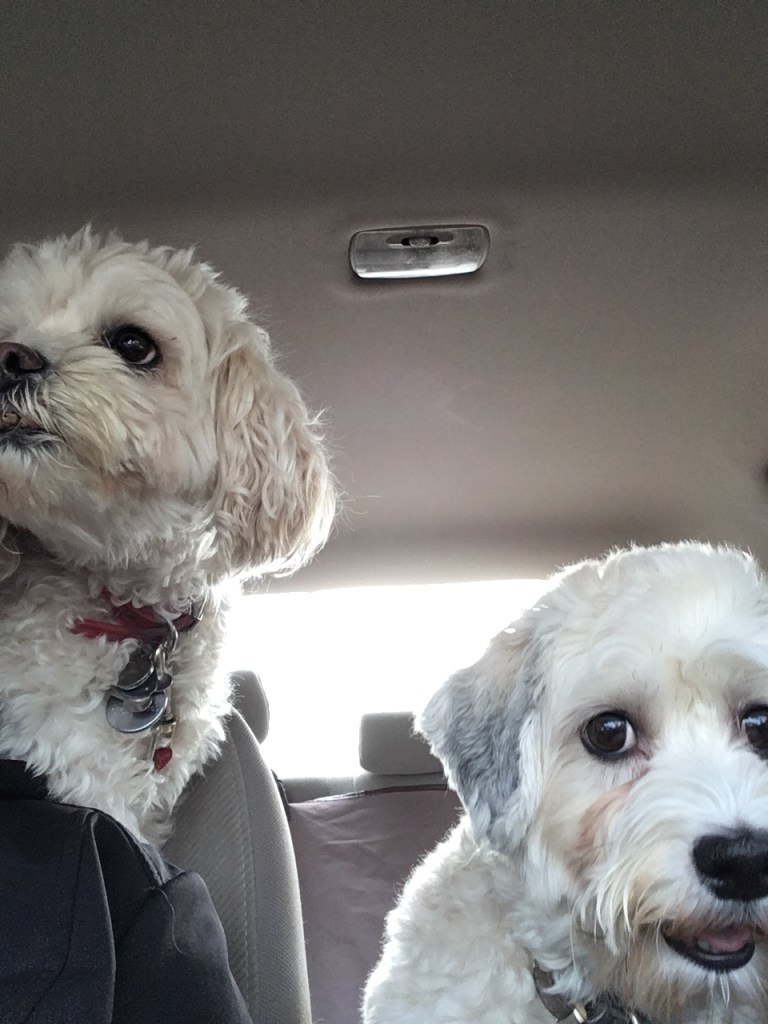
There were so many things about the oral surgery that worried me: I was worried about the pain, and the anesthesia, and being out of commission for a couple of days, which meant leaving Mom to take care of the dogs, even though she was still recovering from her second hip surgery. And I was worried about how I would look, with the bruises on my face and the temporary 3D printed implant. And I was worried about the idea that they would be putting screws into my cheek bones, through my sinuses. How could that not cause problems? I wouldn’t even think of piercing my nose or lip, and now they were going to pierce my sinuses?!
But I knew I had to do it anyway, because just since the surgery had been scheduled even more of my teeth had become obviously loose (rather than just looking loose in my x-rays).
But the one thing I was looking forward to about the surgery, other than having a new set of strong, healthy, upper teeth, was that I wouldn’t have to wear my nightguard anymore. I’ve worn the same nightguard since my early twenties, when a periodontist told me that I grind my teeth every night while I sleep. I wasn’t sure how he could tell, but I assumed he was right. My dentist revised the nightguard once, without commenting on how impressive it was that this same piece of plastic, created by the periodontist a million years ago, was still holding strong.
I’m only finding out now, per Google, that I was supposed to be doing a monthly deep cleaning of the darned thing. I always brushed it with toothpaste and rinsed it and dried it before putting it away in its case (though now I’m also finding out that my toothpaste might have been too abrasive. Oops.). But I’d never heard about doing a monthly deep cleaning with denture cleanser, or alternating half hour soaks in hydrogen peroxide and vinegar. But then again, the article that told me all of this also said that a nightguard should last an average of five years, so… maybe I was better off without the deep cleaning after all.
It’s still possible that I will need a nightguard for my new teeth, once I get the permanent implant in a few months, but it won’t be the same one I’ve had all these years. And even though I will not miss this nightguard, I still feel like I need to come up with a satisfying ritual to say goodbye to it, instead of just tossing it in the garbage. It deserves my respect, if not my love, for watching over me every night and helping me keep my teeth in place as long as possible. The idea of ritual slaughter came to mind, even though the nightguard is not a living thing, because the temptation to hit it with a hammer, or chop it into tiny pieces with a cleaver is very high. But I also like the idea of burying it, like you would do with a ritual object you can no longer use. The problem with that idea is, one, the nightguard is plastic and won’t degrade underground, and two, if I bury it in the backyard, the raccoons might dig it up and then I’ll see it on someone’s porch one morning, after the raccoons have tried it on and realized it didn’t work for their teeth.

But even if a ritual burial/destruction is impractical, maybe there’s a blessing I could say before throwing the nightguard out. Like, Thank you, nightguard, for keeping my teeth safe lo these many years. Now your work is done and you can take your long needed rest. But, again, anthropomorphizing a piece of plastic feels kind of creepy.
Maybe instead, I could thank the periodontist who made it? Or the dentist who revised it? Or the inventor who came up with the idea of a nightguard in the first place? I’m realizing that I rely on many different inventions to keep me functioning like a semi-normal person: my glasses, and orthotics, and painkillers, and anti-depressants, on top of the nightguard and now the new implant. And there are so many other inventions that make my life possible: like air conditioners, and washing machines, and indoor plumbing (!!!), that did not exist for my ancestors a thousand, or a hundred, or even fifty years ago. So, maybe this should be my blessing: Thank you to all of the people who have worked hard to make our lives healthier, safer, and more comfortable. I hope you were paid well for your work. And, may I never have to see this little piece of plastic ever again. Amen.
If you haven’t had a chance yet, please check out my Young Adult novel, Yeshiva Girl, on Amazon. And if you feel called to write a review of the book, on Amazon, or anywhere else, I’d be honored.
Yeshiva Girl is about a Jewish teenager on Long Island, named Isabel, though her father calls her Jezebel. Her father has been accused of inappropriate sexual behavior with one of his students, which he denies, but Izzy implicitly believes it’s true. As a result of his problems, her father sends her to a co-ed Orthodox yeshiva for tenth grade, out of the blue, and Izzy and her mother can’t figure out how to prevent it. At Yeshiva, though, Izzy finds that religious people are much more complicated than she had expected. Some, like her father, may use religion as a place to hide, but others search for and find comfort, and community, and even enlightenment. The question is, what will Izzy find?

